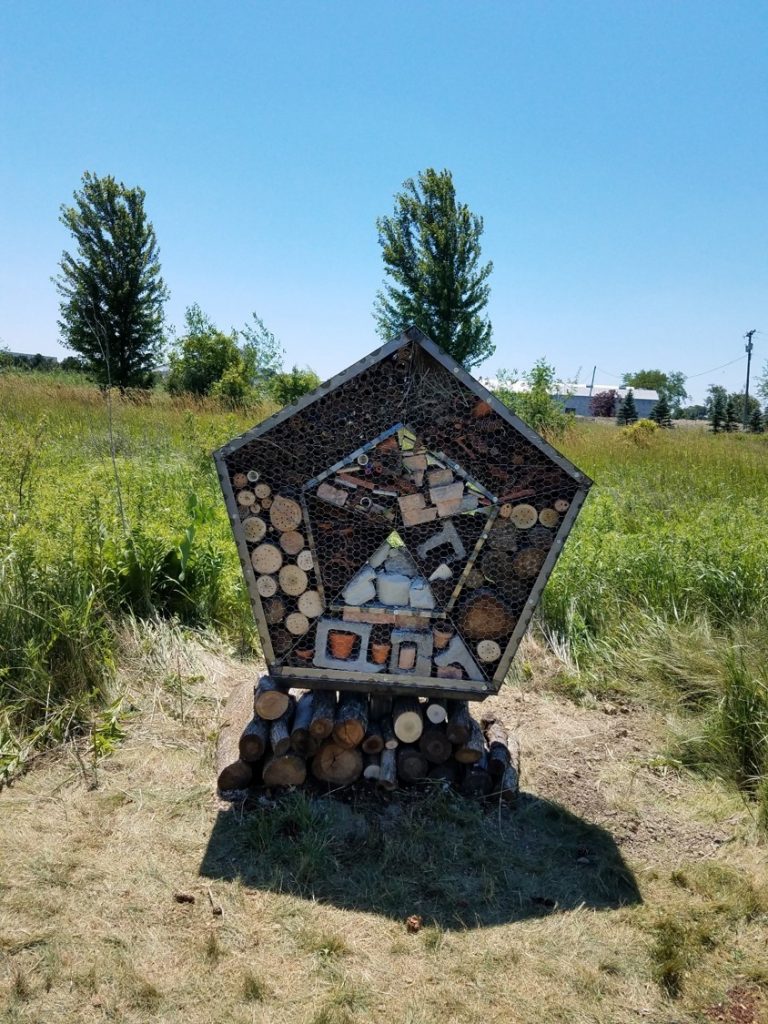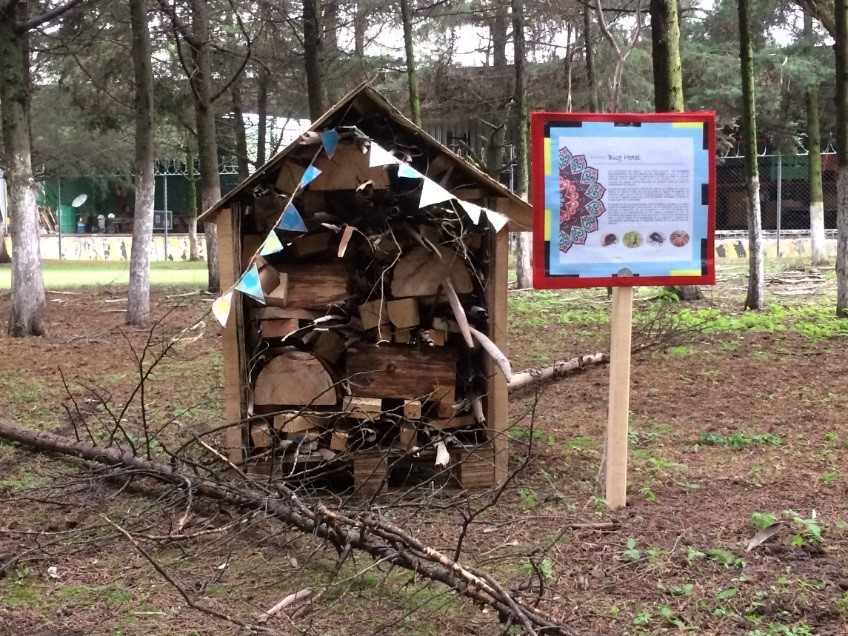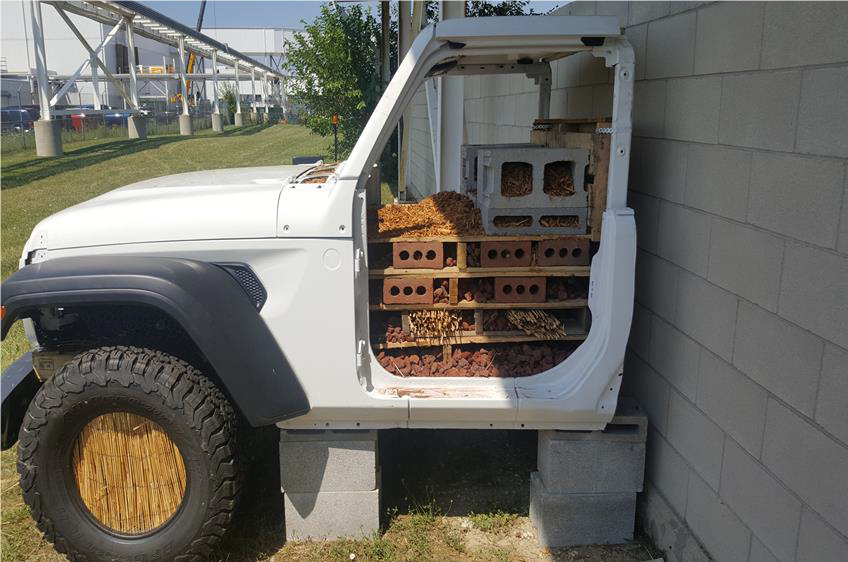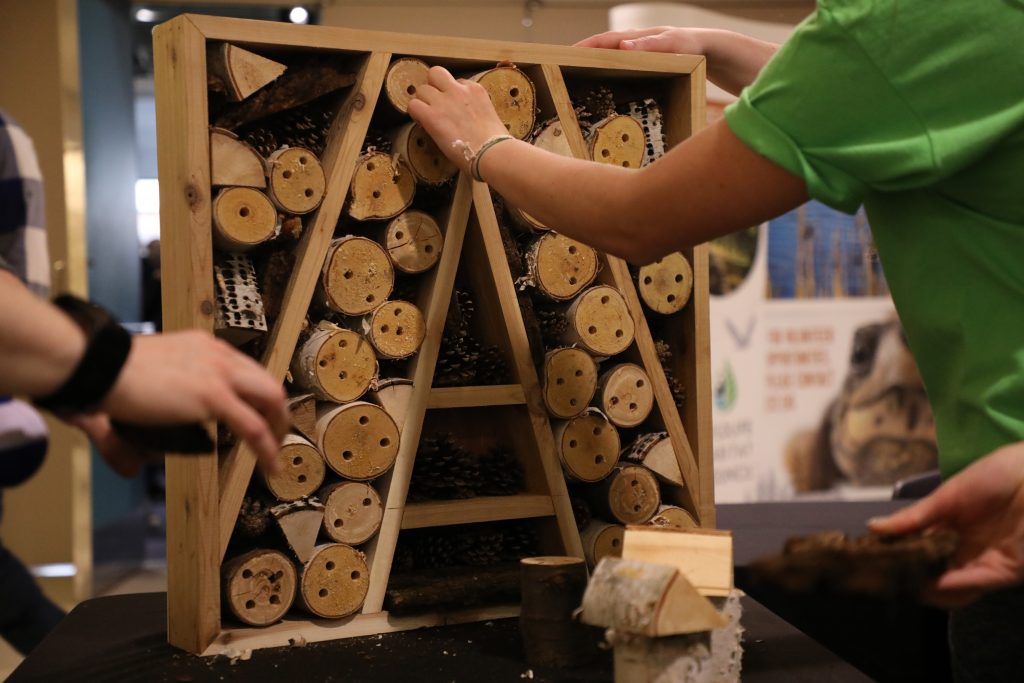These hotels have no complaints about bugs – in fact, they can’t get enough.
To celebrate Earth Day this year, we hosted the Wildlife Habitat Council (WHC) and about 20 students from two Michigan high schools to build “bug hotels.” The hotels – crafted from pine cones, tree bark, bamboo canes and paper tubes – provide the creature comforts needed to promote the growth of these tiny but important critters.
“By providing a beautiful and proper structure for insects, we’re building a habitat that can provide insects safe hibernation in the winter and excellent location for nesting in the summer,” said Environment, Health and Safety Lead Dave Jump. “Working together with the students and the Wildlife Habitat Council gives FCA a great opportunity to engage with our community to protect insect populations and reminds us how valuable every creature on Earth is.”
Insects account for half of all the living things on Earth and pollinate about 80% of all flowering plants, according to the WHC. They are a critical part of every food web in every habitat and their populations are declining, just as pollinators are.
The bug hotels will offer insects safe havens at Bowers Academy in Bloomfield Hills, Avondale High School in Auburn Hills and our headquarters in Auburn Hills.
Plus, 10 of our facilities across Canada, Mexico and the United States already have intricate bug hotels, including Etobicoke Casting Plant, which won the WHC Bug Hotel Challenge in the small to medium size category.

Chelsea Proving Grounds 
Dundee Engine Plant 
Toluca Assembly Plant 
Toledo Assembly Plant
Our environmental conservation efforts extend beyond the bugs too.
Five FCA US facilities were Wildlife Habitat Council certified and, this year, the Auburn Hills headquarters received the highest recognition, Certified Gold, for overall excellence in wildlife habitat and corporate conservation.
The team achieved Gold certification for a variety of reasons, including:
- Installing a nesting box for Wood Ducks or other cavity-dwelling ducks
- Maintaining 10 bat houses, each having the potential to shelter and protect approximately 100-300 bats and their young
- Supporting a series of gardens to attract pollinators and aviators, including a Monarch Butterfly Waystation
- Adding four Mason bee houses on the grounds to further help pollinate plants, flowers and trees
- Preserving the 100 acres of natural wetlands, walking trails, animals and plants on the property
- Mentoring local high school students for more than 18 years to preserve a southeastern Michigan river
We recognize that our environmental and social activities affect not only our aspiration to grow the business, but also our commitment to positively affect our world. Find out more about the Company’s commitment to sustainable efforts in our 2018 Sustainability Report at this link.




